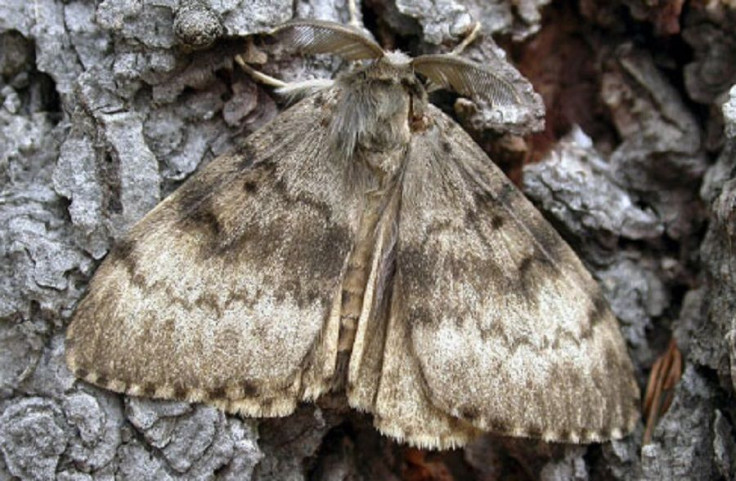Spongy Moth: Invasive Species With Ethnic Slur In Name Gets A New One
KEY POINTS
- Experts previously removed the derogatory common name of the Lymantria dispar
- They have now given it the new name "spongy moth," pertaining to its egg mass
- This is in line with the efforts to move away from offensive names and use better ones
An invasive species that used to have a derogatory common name has finally been given a new one. It is now called the "spongy moth."
Entomologists have been making an effort to rename bugs that have been known for many years by common names that actually contain ethnic slurs. Under the Entomological Society of America's (ESA) Better Names Project, the organization has been seeking the help of the community to identify the problematic names of species and propose new ones.
One such problematic name is the "gypsy moth," which was the previous common name used for the invasive species Lymantria dispar and is actually offensive to the Romani people. The ESA removed the common name last July, noting that it is an ethnic slur that has been "rejected by the Romani people a long time ago."
The ESA then announced Wednesday that its Governing Board has approved to call the species by the new common name "spongy moth." This is derived from "spongieuse," which is a common name that's used for the species in Canada and France and pertains to its sponge-like egg masses.
ESA's Better Common Names Project has published a toolkit for transitioning to the use of "spongy moth," with recommendations, FAQs, a flyer for raising awareness, and more: https://t.co/6e4leT5vqK pic.twitter.com/PiIGtBQsgw
— Entomological Society of America (@EntsocAmerica) March 2, 2022
According to the organization, there were more than 200 proposals for the new name of the species, and it was eventually narrowed down to seven finalists. The selected name, which is effective immediately, was selected by a group of more than 50 scientists and professionals, including those in research, forest management and even Romani scholars who work on human rights issues.
The organization is encouraging others to use the species' new common name and has even provided a toolkit to aid the transition. As ESA President Jessica Ware, Ph.D. explained, the species is quite a "damaging pest" in North America, and the new name actually provides information about a key feature of its biology.
"'Spongy moth' is already beginning to appear in media stories and other online resources, which we're excited to see. But we know this name change won't happen overnight," Ware said in the ESA statement. "Particularly in books or print products, or regulations related to L. dispar, phasing in use of the new name may take some time. ESA will continue to provide supporting resources for organizations adopting this change."
Apart from entomologists' efforts to remove species' offensive names and give them new ones, other experts have also been making an effort in the same direction. For example, the American Fisheries Society previously removed the name "jewfish" and changed it to "goliath grouper." NASA has also begun renaming celestial objects with insensitive names.

© Copyright IBTimes 2025. All rights reserved.






















